|
|
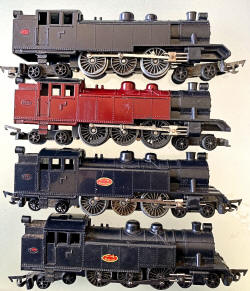 |
|
4 Baltic tanks R.56. All 4 are the Australian
versions
|
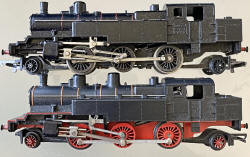 |
|
The 2 different versions of the
Continental Prairie R.653 tank loco. I believe the top one was to represent a
French loco and the bottom one a German loco
|
|
|
|
|
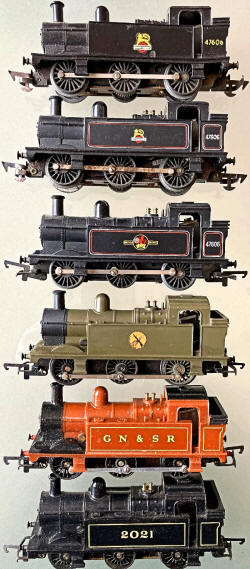 |
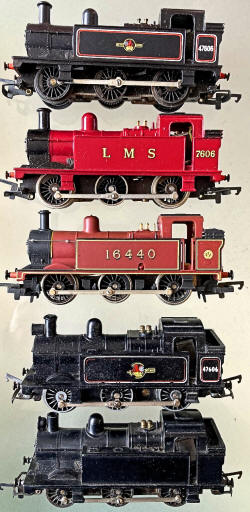 |
|
Some of the Jinty's Triang come
Triang/Hornby come Hornby have made over the years. The bottom 2 of the
second picture are Australian made versions
|
| |
|
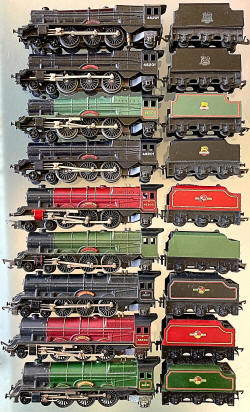 |
|
Some of the UK made Princess's. The top
4 are cellulose acetate, the rest are polystyrene. The top 6 are of the
split chassis design with body screw down the chimney. The last 3 have
the solid cast chassis
|
| |
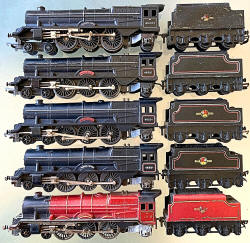 |
|
Some Australian made Princess's, Top one is quite a rare
example. Princess Royal from around 1966. Next is Princess Elizabeth
with a split chassis and solid wheels. Then Princess Elizabeth with the
updated solid cast chassis and see through wheels. Next the loco was
renamed Princess Victoria but still with number 46201 and finally a red
Princess Royal |
|
|
_small.jpg) |
|
4 versions of Hiawatha, although none of
these are called Hiawatha. Top one has a polystyrene loco body and a
cellulose acetate tender body. Next is the Canadian Pacific version,
then the last version made which has the Scotsman tender
|
| |

